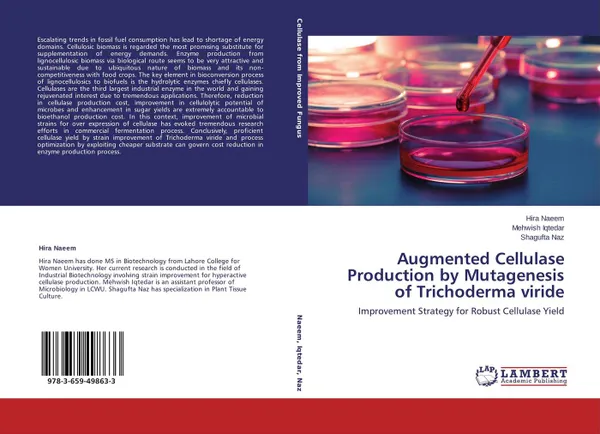Augmented Cellulase Production by Mutagenesis of Trichoderma viride
2014
Переплёт: Мягкая обложка, 136 страниц
Категория: Научная литература
Тираж: 500
📘 Escalating trends in fossil fuel consumption has lead to shortage of energy domains. Cellulosic biomass is regarded the most promising substitute for supplementation of energy demands. Enzyme production from lignocellulosic biomass via biological route seems to be very attractive and sustainable due to ubiquitous nature of biomass and its non-competitiveness with food crops. The key element in bioconversion process of lignocellulosics to biofuels is the hydrolytic enzymes chiefly cellulases. Cellulases are the third largest industrial enzyme in the world and gaining rejuvenated interest due to tremendous applications. Therefore, reduction in cellulase production cost, improvement in cellulolytic potential of microbes and enhancement in sugar yields are extremely accountable to bioethanol production cost. In this context, improvement of microbial strains for over expression of cellulase has evoked tremendous research efforts in commercial fermentation process. Conclusively, proficient cellulase yield by strain improvement of Trichoderma viride and process optimization by exploiting cheaper substrate can govern cost reduction in enzyme production process.
Мнения
